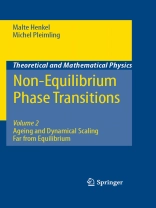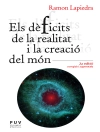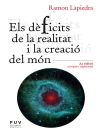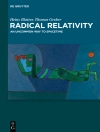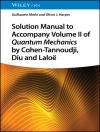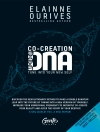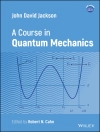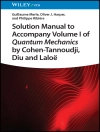“The importance of knowledge consists not only in its direct practical utility but also in the fact the it promotes a widely contemplative habit of mind; on this ground, utility is to be found in much of the knowledge that is nowadays labelled ‘useless’. ” Bertrand Russel, In Praise of Idleness, London (1935) “Why are scientists in so many cases so deeply interested in their work ? Is it merely because it is useful ? It is only necessary to talk to such scientists to discover that the utilitarian possibilities of their work are generally of secondary interest to them. Something else is primary. ” David Bohm, On creativity, Abingdon (1996) In this volume, the dynamical critical behaviour of many-body systems far from equilibrium is discussed. Therefore, the intrinsic properties of the – namics itself, rather than those of the stationary state, are in the focus of 1 interest. Characteristically, far-from-equilibrium systems often display – namical scaling, even if the stationary state isvery far from being critical. A 1 As an example of a non-equilibrium phase transition, with striking practical c- sequences, consider the allotropic change of metallic ?-tin to brittle ?-tin. At o equilibrium, the gray ?-Sn becomes more stable than the silvery ?-Sn at 13. 2 C. Kinetically, the transition between these two solid forms of tin is rather slow at higher temperatures. It starts from small islands of ?-Sn, the growth of which proceeds through an auto-catalytic reaction.
Spis treści
1. Ageing phenomena; 2. Exactly solvable models; 3. Simple ageing: an overview; 4. Local scale-invariance I: z = 2; 5. Local scale invariance II: z ≠ 2; 6. Lifshitz Points: Strongly Anisotropic Equilibrium Critical Points. Appendices: A. Equilibrium Models, D. Langevin Equations and Path Integrals, I. Cluster Algorithms: Competing Interactions. J. Fractional Derivatives. K. Conformally Invariant Interacting Fields. L. Lie Groups and Lie Algebras: a Reminder. M. On the Central Limit Theorem. Q. Lexique/Lexicon. Solutions. Frequently Used Symbols. Abbreviations. References. List of Tables. List of Figures. Index
O autorze
Malte Henkel, born in 1960, received his Master’s degree from the University of Bonn in 1984, and his Ph D in 1987, when he also won the annual prize of the Minerva Foundation. From that year onward he has been a long-term visitor in many institutes, including the ITP at Santa Barbara, USA, the SPh T at Saclay, France, and the universities of Oxford, UK, Vienna, Austria, Padova, Italy, and Lisbon, Portugal. In 1995 he was appointed a professor at the University of Nancy I. His current research encompasses equilibrium and non-equilibrium phase transitions, using field-theoretical and numerical methods in general. In particular, his current focus is on dynamical scaling behaviour realised in ageing phenomena far from equilibrium. He has published well over a hundred articles and three monographs, one of which is Volume I of this set.
